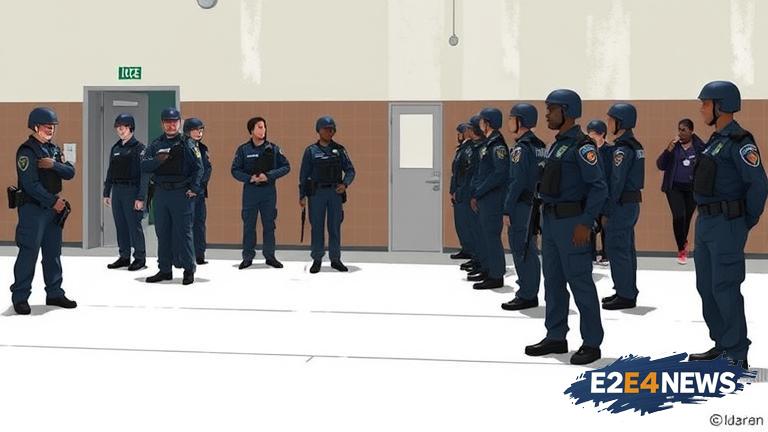The United States Immigration and Customs Enforcement (ICE) agency has announced plans to expand its training program, a move that has sparked concerns among immigrant communities and advocacy groups. The expansion is expected to increase the agency’s capacity to carry out deportations, which has raised fears of a return to the aggressive enforcement policies of the Trump administration. During the Trump era, ICE was criticized for its heavy-handed approach to immigration enforcement, which resulted in the separation of thousands of families and the deportation of many long-time residents. The agency’s training program is designed to equip officers with the skills and knowledge needed to carry out their duties effectively, but critics argue that it also perpetuates a culture of aggression and disregard for human rights. The expansion of the training program is seen as a sign that the Biden administration is taking a tougher stance on immigration, despite its earlier promises to prioritize a more humane approach. The move has been met with widespread criticism from immigrant advocacy groups, who argue that it will lead to more deportations and further erode trust between immigrant communities and law enforcement. Many are also concerned about the potential impact on vulnerable populations, such as asylum seekers and unaccompanied minors. The ICE training expansion is part of a broader effort by the US government to strengthen its immigration enforcement capabilities, which includes the deployment of additional resources and personnel to the southern border. The move is seen as a response to the growing number of migrants attempting to cross into the US, many of whom are fleeing violence, poverty, and persecution in their home countries. However, critics argue that the US government’s approach to immigration is misguided and that it fails to address the root causes of migration. Instead of investing in more enforcement and deportation, they argue that the government should focus on providing a pathway to citizenship for undocumented immigrants and addressing the push factors that drive migration. The controversy surrounding the ICE training expansion highlights the deep divisions within the US over immigration policy and the ongoing debate over how to balance border security with human rights and compassion. As the US government continues to grapple with the complexities of immigration, it is clear that a more nuanced and multifaceted approach is needed, one that takes into account the diverse experiences and needs of immigrant communities. The ICE training expansion is a step in the wrong direction, many argue, and it will only serve to further polarize the debate over immigration and undermine efforts to build a more just and equitable society. The US government must prioritize a more humane and inclusive approach to immigration, one that recognizes the dignity and worth of all individuals, regardless of their immigration status. This includes providing access to legal representation, ensuring that detention facilities meet basic human rights standards, and addressing the systemic inequalities and injustices that drive migration. Ultimately, the US government’s approach to immigration will have far-reaching consequences, not just for immigrant communities, but for the country as a whole. It is imperative that policymakers prioritize a more compassionate and inclusive approach, one that balances border security with human rights and dignity. The expansion of the ICE training program is a concerning development, but it also presents an opportunity for the US government to reexamine its approach to immigration and prioritize a more humane and effective strategy. By investing in community-based initiatives and addressing the root causes of migration, the US government can build a more just and equitable society, one that values the contributions and dignity of all individuals, regardless of their immigration status.





